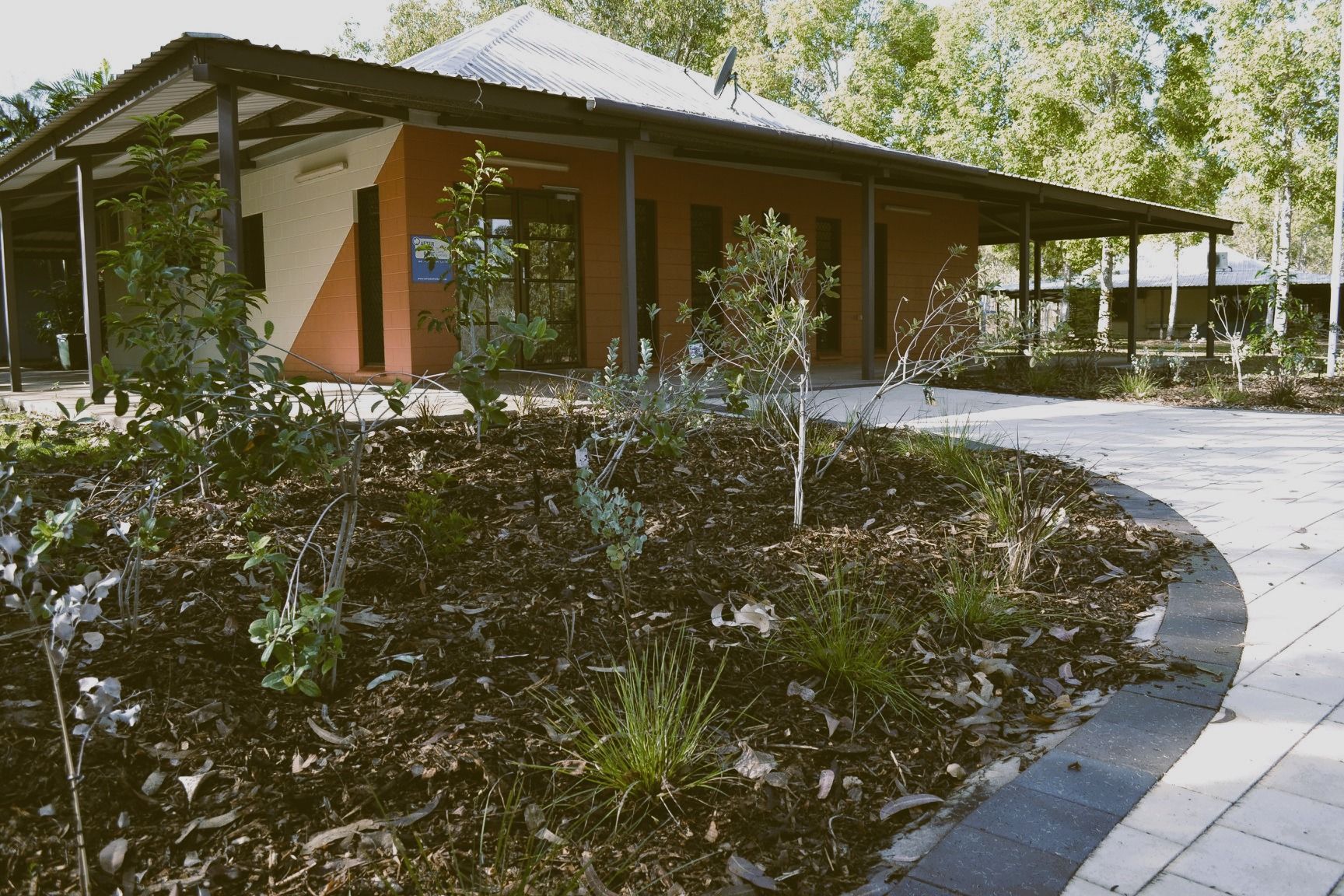Address
Level 2, NAB Building
71 Smith Street
Darwin NT 0801
Contact Us
Reflection is a Good Thing Indeed
It was 2.00am and as usual sleep was alluding me. Great! Time for some constructive thinking. I grabbed my phone which was on the verge of being lost in the chaos of my bed and pulled up the Radio National App, flicked through to the series of Philip Adam’s “Late Night Live”. I used to be an avid Late Night Listener, enjoying the conversation and sound of Adam’s gentle melodic tones. His intellectual contribution to Australian society and beyond is wonderful. Most of his LNL, which are often with the authors of books he has recently read, are thought provoking in a calm presentation suitable to the late hour. Of course his time of presentation was normally 10.00pm but thanks to the RN App I had complete control over when I listened.
On this particular occasion he was reviewing a book, with the author, an Englishman named James Canton, a former school teacher, now attached to a university. The book in question was called “The Oak Papers.” It caught my ear as some of my forbears were British naval personnel named “Oake”, serving the Navy for over 100 years. Yes, I am a Family History enthusiast and a firm believer that learning the lessons from the past can be useful in avoiding making bad decisions in the future. In a way it’s the same when studying the evolving world of education. Sadly not all our leaders understand this and fail to give history its necessary value in the education of our children.
The secret about the nature of the book in question was enfolded in the spelling-“Oak” rather than “Oake”, though we all know that spelling in England was rather loose until Dr Samuel Johnson had a go at compiling a Dictionary of the English Language (1755). It is noteworthy that early in his career he worked as a teacher - he was one of us!
I always imagine Johnson frequenting the eighteenth century Coffee Houses, paying his penny, getting a cup of coffee, sitting there comfortably and diving into rich, enlightened conversations with other creative thinkers and intellectuals. In fact in Oxford the coffeehouses became known as “penny universities. “This was the age of the Enlightenment when ideas developed and flourished like the branches of a tree. Johnson, apparently, regularly frequented the “Turk’s Head” with great Eighteenth Century intellectuals such as Joshua Reynolds (leading English portrait painter), Oliver Goldsmith(brilliant Anglo-Irish novelist, playwright, dramatist and poet) and Edmund Burke (Anglo-Irish statesman, politician and political thinker).
I haven’t read James Canton’s “Oak Papers”, but enjoyed enormously the discussion of his creation with Philip Adams. It was as if I was in an Eighteenth Century Coffee House rather than my Burke Street Grandad Flat. No, Burke street is not named after Edmund Burke but rather the tragic explorer, former policeman Robert O’Hara Burke. That story about decision making is for another day. But the name helps me imagine and then drift into the vibrant thinking of the Coffee House.
Canton explores the wonders of Oak trees, initially inspired by an 800 year old Oak located on the Marks Hall Estate in north Essex. When Canton sat beneath the tree, he felt that he was genuinely communicating with this living, being of wisdom and as a result it generated within him a profound feeling of peace . The tree is known as the Honywood Oak, is famous and has miraculously avoided the axe for all these years. Of course during the heyday of the developing British Empire, when Britain had the World’s largest navy, great numbers of ships were constructed and oak was the key preferred material. “Heart of Oak are our ships , merry tars are our men” rattles the song about those times. HMS Victory, Nelson’s Flagship which won the Battle of Trafalgar required, it is said, 6000 trees to build, 90%of them oak. No wonder there are few natural forests left in England. By the way, if you happen to be passing by Portsmouth you can still see and go aboard Victory, which remains in immaculate condition, a testimony partly to that amazing timber Oak.
Two things about the 2am exercise I want to focus on. Both were about listening and listening to “quiet”. Philip Adams has a very melodious and non-intrusive voice, and James Canton was moderately spoken. Nobody was ramming it into my ears and if they had, I would have turned it off. Sadly Philip Adams is soon to retire. I think he will be a great loss, but then he is 84 years old so probably deserves to retire to his farm. Though Philip is a committed atheist, his father was a Congregational minister. He was born in Maryborough Victoria, which is of interest to me as I lived there for 7 years before coming to Alice 38 years ago.
Canton’s relationship with the Oak came as he sat under it silently and listened carefully to it as the old branches moved and groaned, the leaves rustled in the wind and the spirit of 800 years trickled into him. The tree was born just after Magna Carter was signed in 1215. In 1237 the Treaty of York was signed fixing the border between Scotland and England.1348 the Black Death arrived. In 1373 the Anglo-Portuguese Treaty was signed and is still current, creating the oldest continuous alliance in the World today.1509-1547 Henry VIII (Tudor)ruled. 1521 Lutheran writings begin to circulate in England.1558-1603 Elizabeth1was on the throne.1642 the English Civil War began.1666 Great Fire of London flamed.1694 The Bank of England was Founded.1775-1783 the American War of Independence took place. In1805 the Battle of Trafalgar raged. In 1816 Napoleon was defeated at the Battle of Waterloo. 1830 saw the Liverpool and Manchester Railway, first inter-city railway in the world, opened.1837-1901 Queen Victoria was on the throne.1878 women were first admitted to the Universities of Oxford and Cambridge.1914-1918 World War 1 took place with all its terrible devastation.1939-1945 World War 2 with more death and devastation.1952 2022 Elizabeth II reigned. This is only a fraction what would have happened during this tree’s long, long lifetime. So if someone sitting beneath the tree really listened they would appreciate what this tree had weathered.
I happened to visit the Friends School in Hobart, about three times, during my time as a Principal. Friends is a Quaker school and keenly follows the Quaker tradition. The Principal explained how silence was part of their tradition of worship.
I was interested because we live in a very noisy world where silence may be at a premium for people. Listening can reveal all sorts of interesting and helpful things as Canton found with the tree. I think that sometimes today children need to be shown how to listen so they can benefit from using silence. This will probably require removing the speaker from their ear.
By the way, there have been many highly successful Quakers: Olive Pink, an Australian botanical illustrator, anthropologist, gardener and activist for Aboriginal Rights. Alice Springs Botanic Gardens are named after her. Keith Alan Waterhouse Crook, noted Australian Geologist. Margaret Thorp, Peace and labour activist in twentieth century Australia Jo Valentine, an Australian peace activist and former senator from Western Australia.
Judi Dench, Actor
William Penn, Founder of Pennsylvania
George Cadbury, Founded a Chocolate Empire
Joan Baez, Folk singer
Richard Nixon, American President
Ben Kingsley, Actor (Played Gandhi in the epic film of the same name)
David Lean, British Film Director (Directed such famous movies as Lawrence of Arabia, Doctor Zhivago, The Bridge on the River Kwai , A Passage to India)
Barclays Bank, founded in London by Quakers, John Freame and Thomas Gould.
Lloyds of London, founded by Quakers, key was Sampson Lloyd II.
Clarks Shoes, founded by Quakers, Cyrus and James Clark
So silence and reflection is something very familiar to a Principal, listening and reflecting on what you have heard, not jumping in with little thought, but if necessary delaying before a reply. If the reply can be made immediately fine but it is OK if you have to think on it. In listening you will possibly use “active listening queues” to encourage the person in what they are saying but never trying to take over and never, never telling them what you think they should be saying. A thoughtful contribution by you as Principal will be worth heaps. And as Principal, you will know that part of the art of listening is engaging the person by looking at them, not looking away or over their shoulder indicating boredom. Through my life I have been surprised at the number of Principals who were not good at this. Yes active listening: “tell me more; I understand; It must have been difficult; Can you explain; Nod; I’m really interested in what you are saying; Sure; I see. ”The key is that the person you are listening to should feel that they are the only one in your world at the moment.
Reflection is indeed a useful and rich experience. James Canton gained much from sitting under a tree and letting the boughs of reflection journey through his mind. And if there is no suitable tree available the mind can be enriched using a metaphoric tree.
Written By Chris Tudor


All Rights Reserved | Association of Independent Schools of the Northern Territory
AISNT acknowledges the Traditional Custodians of Larrakia country, where we are privileged to live, learn and work. We acknowledge the Traditional Custodians of Country throughout the Northern Territory on which our schools are located. We pay our respects to Elders past and present and extend that respect to all Aboriginal and Torres Strait Islander peoples

